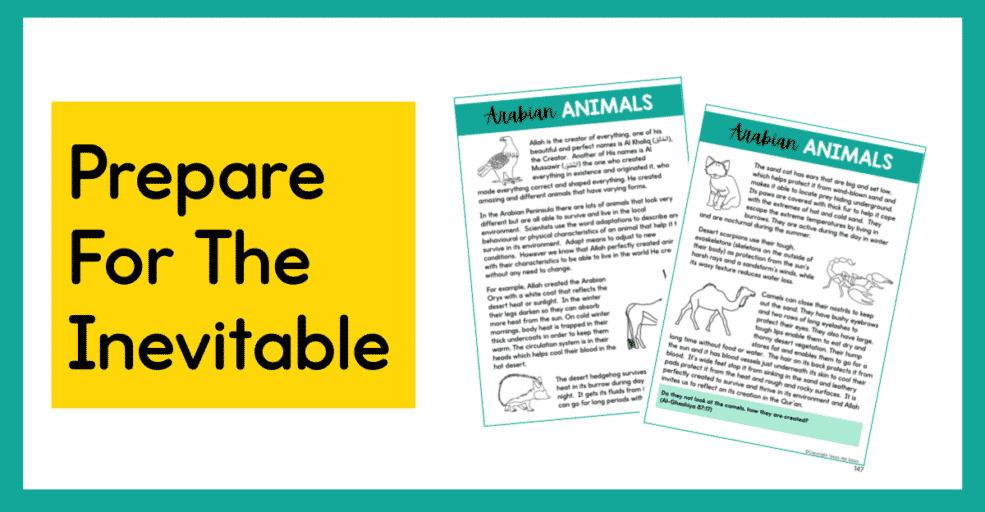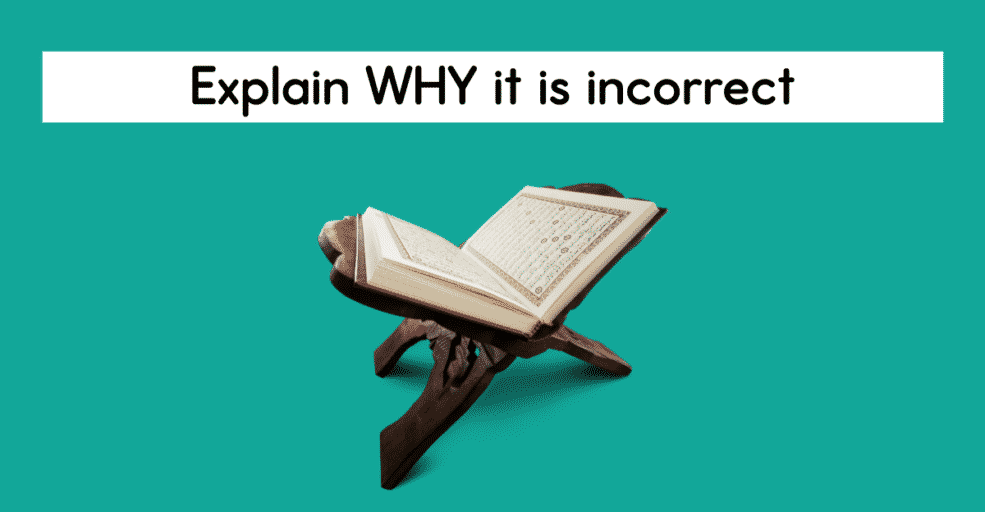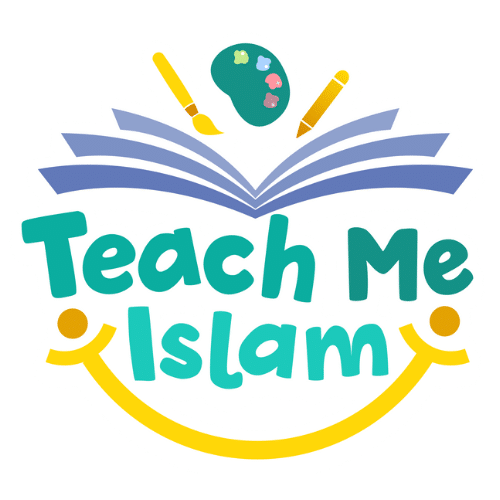Unislamic ideas seem to be permeating further and further into our homes as technology becomes more integral to our lives. Internet is no longer optional for the majority of us. It helps us communicate with family, find locations, educate our kids and perform a variety of daily tasks. Technology is not neutral however. English is used by 60% of the top 10 million websites. Language and culture are inextricably linked and it’s a indicator of how much the internet is dominated by one cultural outlook. This isn’t a new threat, Islam has a long history of combatting foreign ideas. Greek philosophy was once a trial for a lot of Muslims and that definitely predated the internet! So how do we combat these unislamic ideas that our kids are exposed to? Let’s explore a few different approaches.

Limit exposure to unislamic ideas
The first one is the most simple but not necessarily the easiest. Limit the amount of time kids are exposed to unislamic ideas that are contrary to their faith. This can mean cutting back on or highly moderating their internet use but it can also mean reevaluating schools and their company. If your child attends an educational institution, it is vital to examine the ideals of that school and whether they contradict your own principles. It can be tempting to view schools as neutral but they definitely are not! We don’t consider British schools the same as American schools they have different curricula, educational philosophies and different systems. Yet they are far more similar than a school-based on Islamic values is to any other school. If your child is in school 6 hours or more every day, absorbing principles that oppose their deen, instilling Islamic morality and understanding is like swimming upstream. All the force of the water is working against you. Your child is under the authority of educators who are teaching unislamic ideas and they naturally look up to and value their opinions. Another important factor is their company. What kind of friends do they have and what is their influence. This will vary vastly with the age of your child but it’s an important Islamic principle that you are deeply affected by your company. There will be some inevitabilities for example spending time with family but in general, an honest assessment of how they are spending their time and a realistic appraisal of where you can cut down on unhealthy influence can have a great effect inshaAllah.
Prepare for the inevitable

Despite minimising the exposure to unIslamic ideas, there are some ideas that will likely reach them anyway. An example is evolution, it’s present in kids’ books, fact sheets about animals and a range of educational materials present the idea of ‘survival of the fittest’. Knowing this, prepare for it by presenting the Islamic perspective as early as possible. A firm belief in Allah’s name Al-Khaliq and qadr will help them reject any idea of animals morphing into one another or humans.
Combatting evolution
- Allah is the best of creators
- Allah determines the life span of every living thing
- Allah grants people success
- Humans are descended from Adam
- Allah made humans unique

Explain WHY it is incorrect
Identify the wrong belief and break down why exactly it is incorrect. Don’t just dismiss as it’s wrong. Islam is against it. Explain with proof and evidence why it is false. Allah combats wrong beliefs in the Quran and his speech is the best of speech. Use it to counter any wrong ideas.
Explain the bad consequences
Allah does not forbid anything for us unless it is very harmful. Explain any negative effects of that belief. For example demonstrations and democracy leads to poor leaders and instability.
Use the speech of the scholars
The scholars are the inheritors of the Prophets. They often have articles, books, talks and fatwas that counter current fitn facing the ummah. If your child is too young to read it themselves, use it as the basis for how you explain the issue to your child. Adapt it into language they can understand.

Model it without explanation
Sometimes you do not need to explicitly counteract an idea. It can be enough to model the opposite to them. An example could be the misconception that Africans are poor and needy. This is not an Islamic preconception. Africa was where the earliest Muslims sought refuge and help in the first Hijrah. There have always been African Muslims who were scholars, taught others, were given positions of leadership and helped the Muslims with their wealth. You don’t need to explain this in detail. In the Africa and Islam unit, 2 biographies are explored. The Muslim King An-Najashi who gave the early Muslims shelter and Mansa Musa, the richest man in history according to historians. He changed whole economies with the amount of gold he gave away on his way to Hajj. He used his wealth to build Islamic universities in his kingdom and build masajid. By teaching about these two examples, without ever having spoken it aloud, you have contributed to dispelling any myths they have about Africa and Africans. These negative preconceptions can be picked up everywhere. Sometimes they exist in the absence of education. I had genuinely no idea about Arab contribution to modern science, mathematics and medicine. We studied the English King Henry the VIII and the World Wars at school. No one ever told me explicitly that Arabs had no educational legacy but I had assumptions based on a complete lack of knowledge. If we don’t craft our kids’ outlook, someone else will. This can be scary due to the responsibility but it’s also really empowering. What a gift to be able to give them a vision of humanity with a clear idea of its purpose, to worship Allah alone.

Give them alternatives
Can you name a superhero? It’s difficult to escape them even if you have never taken an interest in them yourself. Characters and famous personalities abound but kids can only take the role models that you help provide for them with Allah’s permission. So we can try to be the best role models for them ourselves and additionally teach them about the many many incredible virtuous Muslims. Firstly the Prophets, then the Companions and then scholars. I receive a lot of requests for resources on famous Muslim inventors, or scientists or medics but actually, I would suggest that it is far more important to prioritise the lives of the truly righteous. Focusing on Muslims who made great discoveries without any care for their level of piety, reinforces the message that your greatest contribution is by achievement in the dunya (no matter how helpful) rather than fulfilling our true purpose which is worshipping Allah alone. The lives of the Prophets, Companions and scholars contain amazing examples and lessons that we all can benefit from. May Allah bless us with a beneficial legacy.
If you are interested in teaching your kids about these role models you can find the following FREE resources here:
Jafar bin Abi Talib (may Allah be pleased with him)
Abu Ubaidah bin Al-Jarrah (may Allah be pleased with him)
The Black Girl & The Red Scarf (may Allah be pleased with her)
Imam Bukhari (may Allah have mercy on him)
The others in the 10 Promised Paradise Series can be found here. I’ve tried to make them affordable so everyone can benefit but if it is beyond your current means then please e-mail me at teachmeislamtpt@gmail.com.
Final Points
I hope these ideas help you combat any unislamic ideas that your kids may be exposed to. Another tip (that I find SO difficult to follow) is to keep it short and to the point. I’m a rambler but I know it is far more impactful to make your point concisely and move on. The reminders in this blog post and for me first and foremost. May Allah bless our kids and keep them safe!
Here are some other blog posts you may be interested in:
How to teach Islamic content all day long
Should you use Islamically Integrated Resources or teach Islamic Studies separately?






